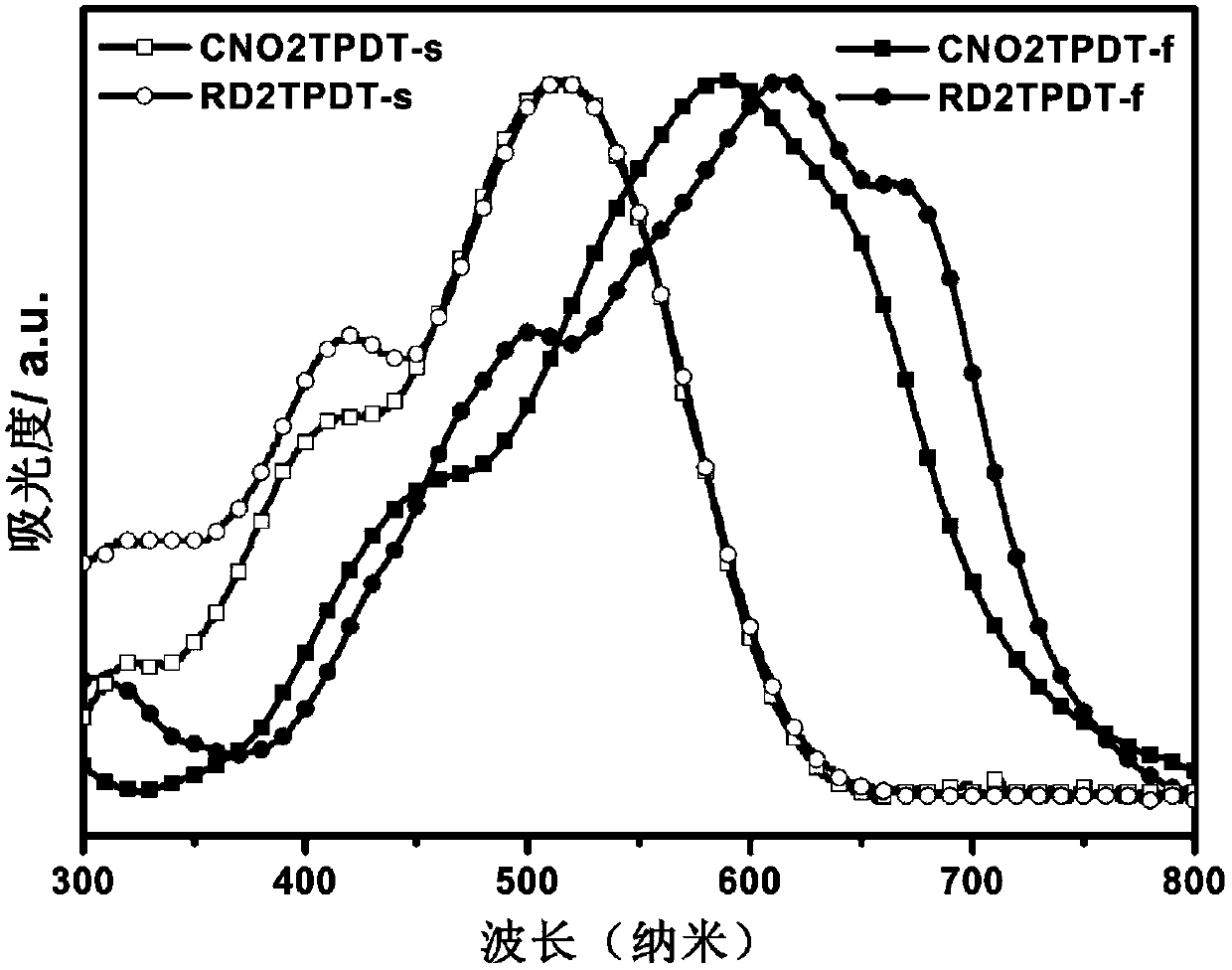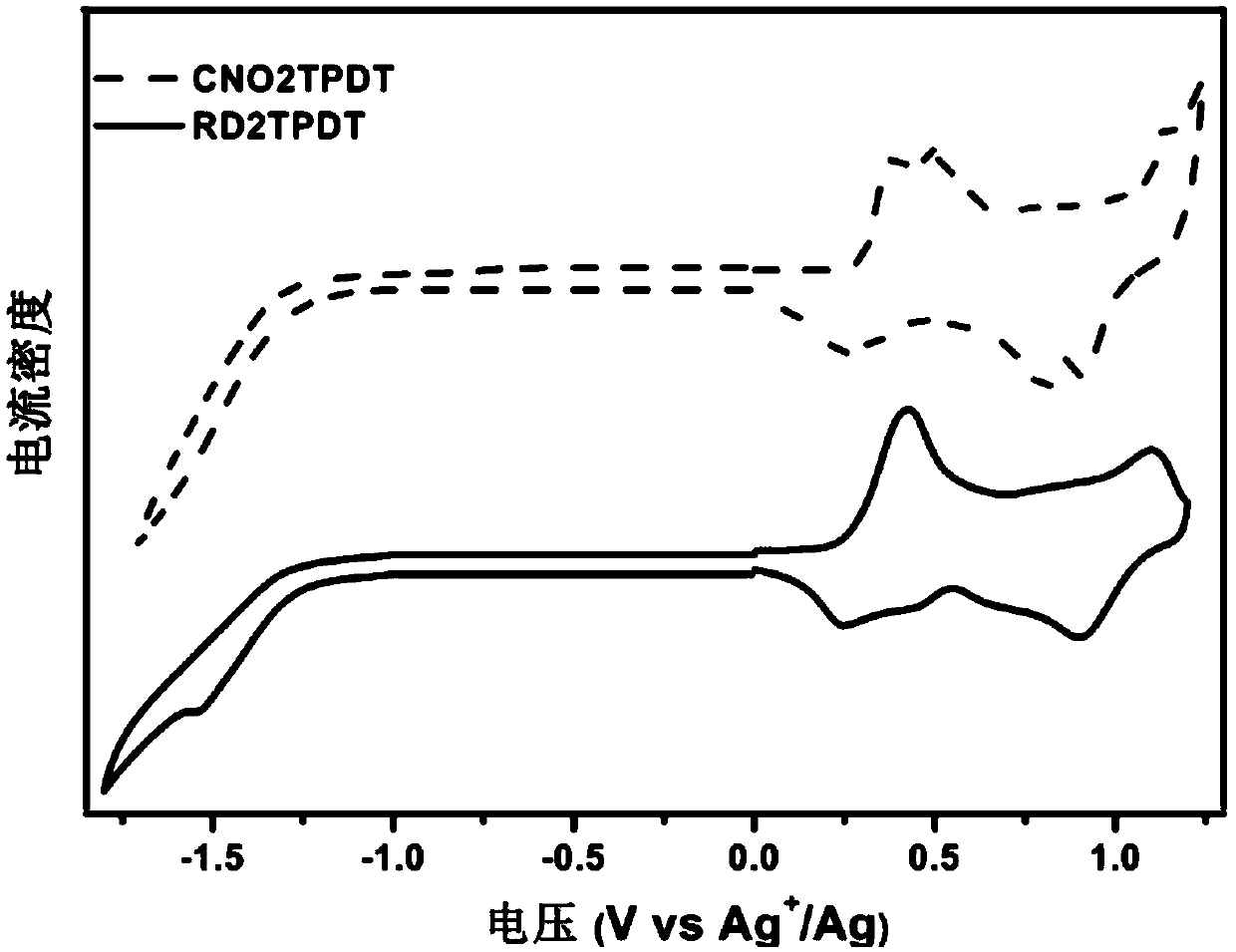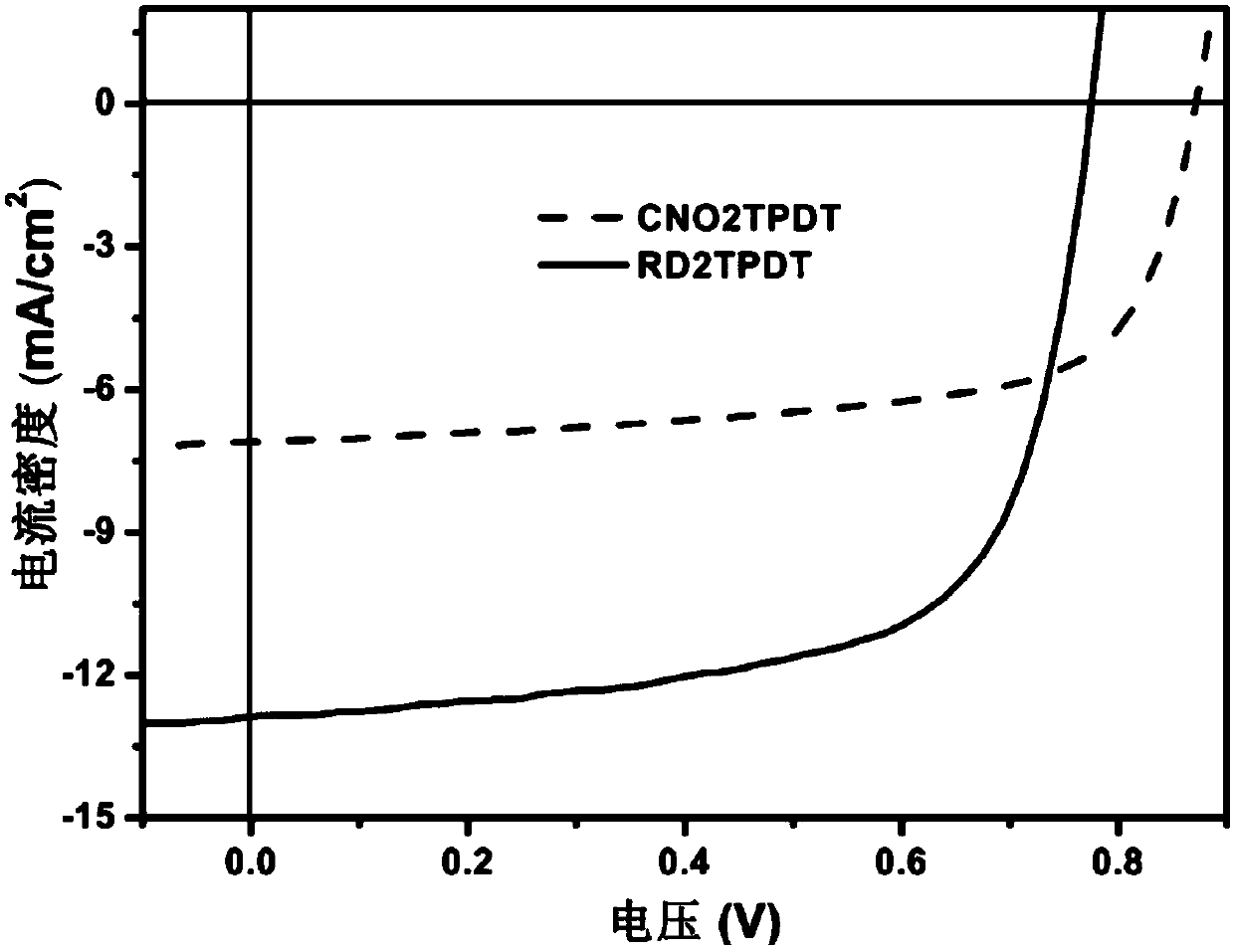A p-phenylene ether dithiophene organic photoelectric compound and its preparation method and application
A technology of hydroquinone dithiophene and p-phenylenediether is applied in the field of p-phenylenediether dithiophene organic photoelectric compounds and preparations, and can solve the problems of difficult synthesis, high cost, restricting the commercialization of organic solar cells, and the like. Good planarity and degree of conjugation, strong electron donating ability and simple structure
- Summary
- Abstract
- Description
- Claims
- Application Information
AI Technical Summary
Problems solved by technology
Method used
Image
Examples
Embodiment 1
[0075] The synthesis of embodiment 1 compound 2a
[0076]
[0077] 2-(Trimethyltin)-thiophene (10.19 g, 41.26 mmol) and compound la (6.00 g, 13.75 mmol) were dissolved in redistilled toluene (70 ml). Add catalyst Pd(PPh 3 ) 4 (795 mg,) and the solution was degassed three times. At 100°C, stirred and refluxed for 48h, concentrated by rotary evaporation, and petroleum ether / ethyl acetate (9:1) was used as eluent to pass through the column to obtain compound 2a as a light yellow solid (4.3g, 9.71mmol, yield: 71%). 1 H NMR (400MHz, Chloroform-d) δ7.53 (dd, J = 3.7, 1.2Hz, 2H), 7.33 (dd, J = 5.1, 1.2Hz, 2H), 7.25 (s, 2H), 7.09 (dd, J=5.2,3.7Hz,2H),4.08(t,J=6.6Hz,4H),1.96–1.83(m,4H),1.58–1.47(m,4H),1.42–1.32(m,9H),0.91 (td, J=5.8, 4.8, 2.9Hz, 6H).
Embodiment 2
[0078] The synthesis of embodiment 2 compound 2b
[0079]
[0080] The synthetic method of compound 2b is the same as that of 2a in Example 1, the only difference is that compound 1a is replaced by 1b, and the amount of compound 1b is (8.00g, 16.25mmol), to obtain compound 2b (12.10g, 24.58mmol, yield Yield: 82%), white powder. 1 H NMR (400MHz, Chloroform-d): δ7.54 (dd, J = 3.6, 1.1Hz, 2H), 7.34 (dt, J = 5.2, 1.0Hz, 2H), 7.12–7.08 (m, 2H), 4.08 (t,J=6.5Hz,4H), 1.96–1.85(m,4H), 1.59–1.47(m,4H), 1.44–1.22(m,18H), 0.90(t,J=6.6Hz,6H).
Embodiment 3
[0081] The synthesis of embodiment 3 compound CNO2TPDT
[0082]
[0083] It includes the following steps:
[0084] (1) Synthesis of compound 3a
[0085] Compound 2a (4.00 g, 9.04 mmol) was dissolved in anhydrous THF (90 ml) at -78°C under the protection of argon. Then n-BuLi (22.6mmol, 9.4ml, 2.4M in THF) was added dropwise. After stirring at -78°C for 1 hour, the liquid nitrogen acetone bath was removed and stirred at room temperature for 1 hour. Then the solution was cooled to -78°C, trimethyltin chloride (27.12mmol, 13.56ml, 2.0M THF solution) was added dropwise, and the reaction was carried out at -78°C for 1 hour. The cooling bath was then removed and stirred overnight at room temperature. After quenching with water, it was extracted with petroleum ether. The organic phase was washed with water and washed with anhydrous MgSO 4 dry. Concentrated and rotary evaporated to obtain compound 3a (3.50g, 4.56mmol, yield: 50%), which was a light green solid containing a c...
PUM
| Property | Measurement | Unit |
|---|---|---|
| thickness | aaaaa | aaaaa |
Abstract
Description
Claims
Application Information
 Login to View More
Login to View More - R&D
- Intellectual Property
- Life Sciences
- Materials
- Tech Scout
- Unparalleled Data Quality
- Higher Quality Content
- 60% Fewer Hallucinations
Browse by: Latest US Patents, China's latest patents, Technical Efficacy Thesaurus, Application Domain, Technology Topic, Popular Technical Reports.
© 2025 PatSnap. All rights reserved.Legal|Privacy policy|Modern Slavery Act Transparency Statement|Sitemap|About US| Contact US: help@patsnap.com



